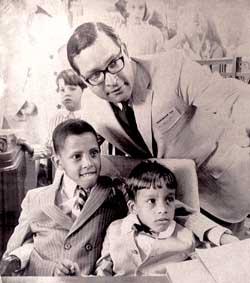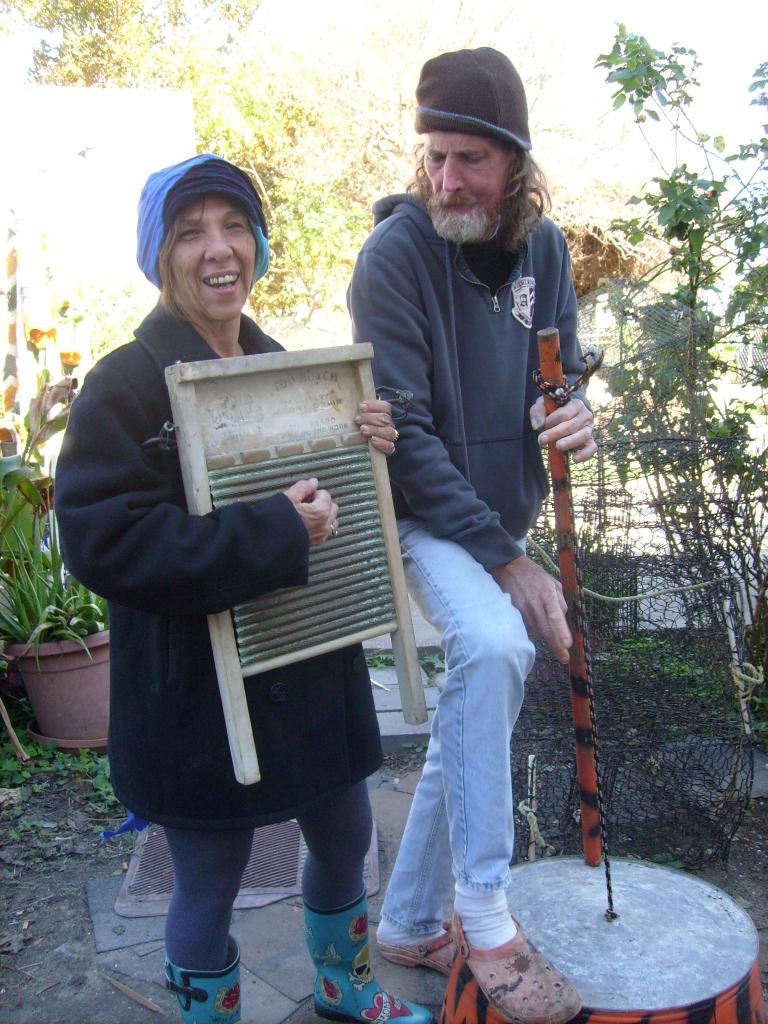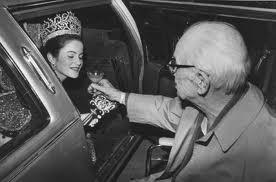Nothing Stops Mardi Gras

By MS Pearl
As related by Sean the washtub player
New Orleans had their first black mayor, Dutch Morial. The police department was mostly white. The year was 1979.
Police Union Leader Vincent J. Bruno, who was related by marriage to Carlos Marcello, reportedly made statements that did more harm than good. Although they gave in on a few of their demands, the strike went on. They had some real issues; however public sympathy was low, especially in the French Quarter - in part because of Bruno, as well as the scathing articles which appeared in the paper charging the police department with corruption.
Eddie Edwards sent the National Guard, and the mayor canceled Mardi Gras.
Or at least he thought he did.
The strike did us a favor by forcing us to renew many Mardi Gras traditions that once flourished before the massive float craze took over.
People were starting to think the massive floats were the only thing going. Large floats had long since been moved Uptown, French Quarter residents had to go Uptown to see them, with the exception of Canal St.
13 krewes canceled. Pegasus became the first to skirt the strike by rescheduling its parade in suburbia. The club’s slogan has deep meaning for its members: “Neither rain, nor cold, nor strike, nor hurricane’s might.” Many others followed their example. Suburbia partied on but what about New Orleans?
New Orleans, the French Quarter
Sean was walking down Bourbon when the trucks full of soldiers came rolling slowly down the street full of twenty-somethings.
Sean climbed into the truck with one 20 year old from New Orleans and eight 20 year olds from Lafayette perfect.
Sean produced a joint, but not the foot long one he was saving for Midnight. Someone pulled a bottle out of his boot. It was - after all - carnival time.
Sean was halfway out of the truck when a officer drove up behind them. Thankfully, he thought Sean was climbing in. He loudly ordered the soldiers "GET THAT CIVILIAN OFF THAT TRUCK." They did as they were ordered, providing a better ride than United Cab anyday.
Cops were handing out flyers that said at midnight the people would be living in an unprotected city. Residents' reacted, "Yea Right!" Locals showed up in the French Quarter costumed and ready to celebrate; no police, great!
The tourists were scared off, visions of project residents pouring into the Quarter danced in their heads, all the tourists retreated to their hotel rooms.
Everyone else was at their jobs on Bourbon street. A fair number of people hired to work Mardi Gras, almost all locals. They stood in the doors of the bars and restaurants of the Quarter - all dressed up (as they say) with no place to go.
Even the Lucky Dog Man was looking sharp that day. Flower vendors, barkers, bartenders, locals who wandered in from nearby neighborhoods - all ready for the carnival.
New Orleans prepares for Mardi Gras all year long for a host of reasons, not all financial. Everyone and everything was poised and ready for Mardi Gras except the tourists.
Then comes Casey, click clack click clack clang bang ping.
Someone stepped out of an empty bar and walked behind him, then another, and another. A huge second line started at Canal. The waiters, waitresses, musicians, various street people (who are always undaunted by the rest of us anyway) - all followed Casey.
The pied piper of New Orleans played on. They marched all the way to Toulouse where he stopped in the middle of the street and passed out crackers to people. It was party time. The smell of marijuana. People dancing. Then.....
The National Guard showed up. Was this the race riot they expected?
No. They stood around, not knowing what to do with their M16s, obviously enjoying the show. Then, a high ranking officer came and broke it up.
At Midnight, Sean was on Bourbon and St Peter. He lit his foot long joint and loudly declared "Police Free Mardi Gras!" Someone tapped him on the shoulder. Although he wasn't in uniform, Sean recognized him as a police officer who worked the Quarter.
He asked, "You want to throw that down?"
Sean said, "What are you, a scab?"
The officer answered, "No, man, we're just out here."
"Yes sir," Sean said. After all, the police were there to protect and serve - as always - and the residents of New Orleans were there to party - also as always. Nothing stops Mardi Gras.
The strike changed some things. The 5th District didn't exist before the strike - officers from other districts answered French Quarter calls.
There was no sense of community. Each district sent its misfits
That worked fine. For the first time, the Quarter had openly gay officers and this cut down on the violence perpetrated against gay French Quarter residents - who feared calling the police before the 5th district was formed
The French Quarter's impromptu parade wasn't the only one.
People marched and celebrated Mardi Gras all over the city as always. But this time with a renewed passion.
Many new marching clubs started with the Mardi Gras Police Strike, old clubs reformed, and the popularity of walking clubs increased dramatically.

